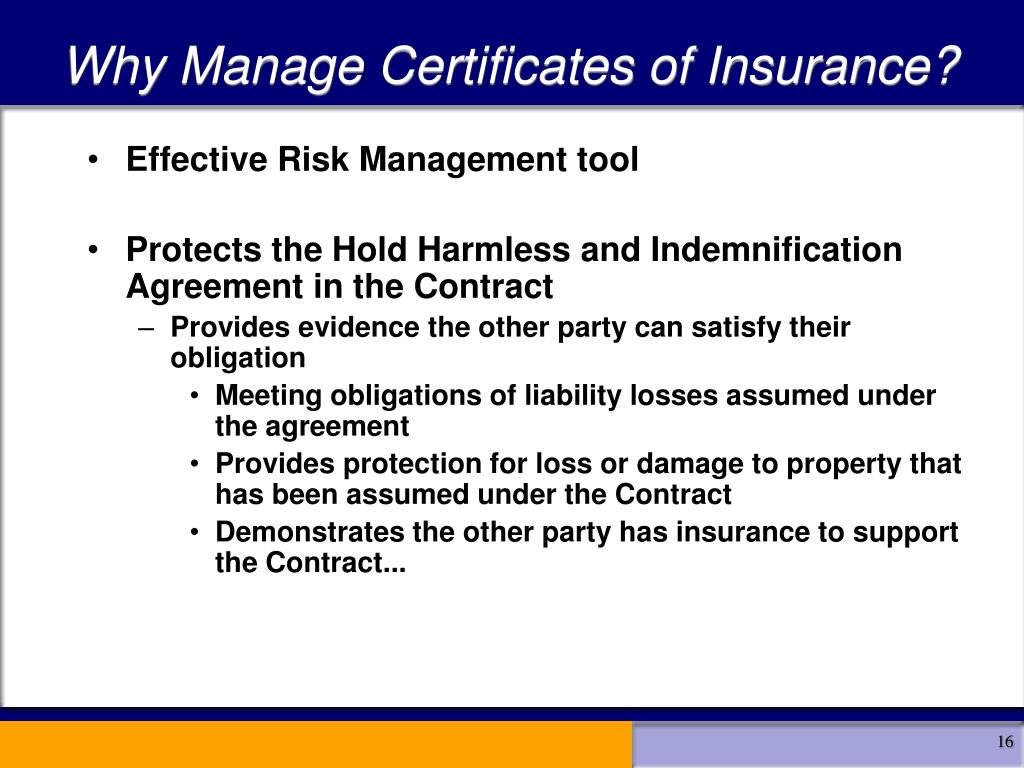What is indemnification ? Should the indemnity clause include the key words? Should independent contractors have indemnities? The parties to this Agreement agree that JACC is an independent contractor and shall not, under any circumstances, be deemed an employee of the City. Mutual indemnification clause independent contractor refers to a party involved in a contract and specifies indemnification costs and liabilities between parties involved. Such clauses can be constructed so that only one party is indemnified by the other or mutual indemnification occurs.
Art explains indemnification and provides excellent advice. The event might lead to special risk or exposure that justifies special attention. The extent of the risk might be unknown, and not even be capped by an exclusion of liability in the contract. The most important part of an indemnification clause is that it protects the indemnified party from lawsuits filed by third parties. IS AN INDEMNIFICATION CLAUSE ? This clause should simply come out and say something along the lines of, “ Contractor is an independent contractor and is not an.
Both Parties are independent contractors under this Agreement. Nothing herein contained shall be deemed to create an employment, agency, joint venture or partnership relationship between the Parties hereto or any of their agents or employees, or any other legal arrangement that would impose liability upon one Party for the act or failure to act of the other Party. These provisions require one party to assume responsibility for third party claims made against the other party, and they’re very commonly used in construction contracts.
An indemnification clause basically transfers risk from one party to another. In fact, indemnification clauses are a major player in the ever-waging war over managing risk. The indemnity clause provides a mechanism for compensation in the event of losses incurred while fulfilling a contract.
In a simple example of how this type of clause might work, a company could hire an independent contractor to perform work. The purpose of an indemnity clause is to provide some protection to the other party. A properly worded indemnification clause is critical to reducing risk in a construction contract.
An indemnity clause gives one party an obligation to compensate the other if harm or loss arises from the contract. The danger, however, is when the clause is more extensive than the party thought when they entered into the agreement. Indemnification Clause. By definition, an independent contractor who is “in business for himself or herself” may take on other assignments.
An exclusive arrangement implies that the contractor depends economically on the company. An overly broad noncompetition clause may have the same effect as an exclusivity clause an consequently, present the same problems. Client will not require Contractor to rent or purchase any equipment, product, or service as a condition of entering into this Agreement.

Some states do not favor indemnity agreements and present limitations to indemnity clauses in construction contracts. It is essential that the agreement identifies the scope and extent of the indemnification. This type of agreement works by protecting the contractor under one particular trade or series of events as explained below. Whether an employment relationship exists depends largely on the relationship and level of integration of the person within the business itself - regardless of what a contract declares to be the case.
BACKGROUND Of all the contract clauses in professional services agreements, indemnification clauses have the most significant liability implications. A conduct of claims clause offers significant and practical protection to an indemnified party. There are many permutations of such a clause , and the practical requirements of each particular clause will need to be considered carefully. Alternatively, they are ‘make good’ clauses where the other party is put back in their original position before the claim. An indemnity is also known as a ‘hold harmless’ clause as one party agrees to hold the other party harmless.

The Contractor agrees to provide, as an independent Contractor , the services described in Schedule “A”, attached.
No comments:
Post a Comment
Note: only a member of this blog may post a comment.